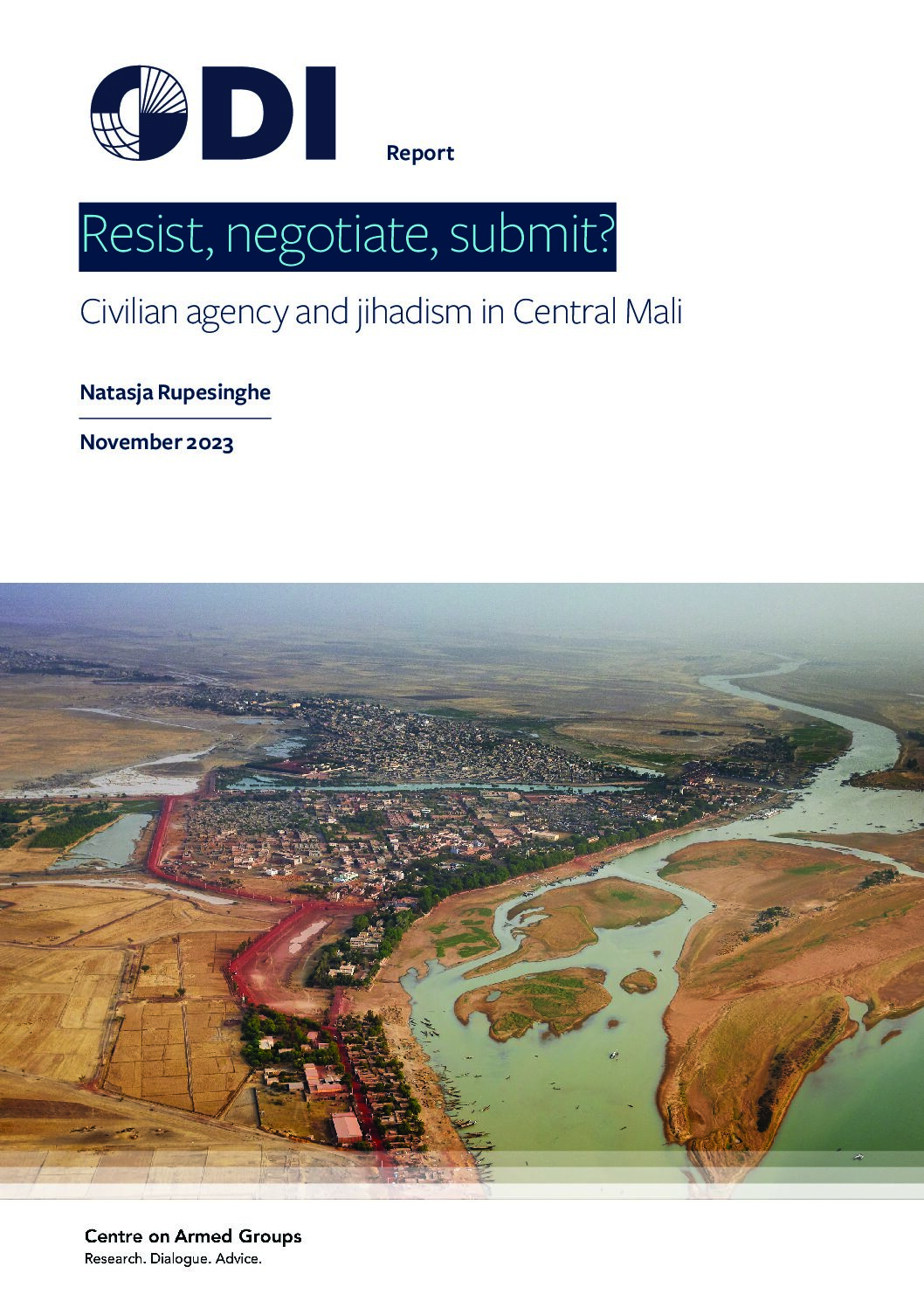Understanding Civilian Coping Strategies Amid Rising Jihadist Activity in Central Mali: Insights and Implications for Humanitarian Action
“Grassroots civilian agency in jihadist conflicts can be harnessed to improve preventive strategies, long before violence breaks out and escalates.” – Natasja Rupesinghe, Fellow at the Centre on Armed Groups
In the wake of a rise in jihadist activity in West Africa, pastoral and farmer communities in rural central Mali’s Niger Delta are especially vulnerable to jihadi-induced village blockades, coercion on Islamic practices, and violent attacks against civilians and state affiliates. Mali’s war on terror moved to central Mali in 2015- when anti-state and French authorities’ jihadi groups formulated due to a power vacuum caused by counter-terror operations focusing on the northern region in Mali. These groups draw knowledge of customary traditions to rectify historical land grazing disputes in the absence of state authorities who have previously neglected and exploited civilians’ formal judiciary complaints regarding grazing and farming resources. Nonetheless, these groups, notably the Movement for Oneness and Jihad in West Africa and Katiba Macina, have used violent and coercive tactics to entrench their authority in the rural regions of central Mali.
As Sahelian Africa is emerging as the epicenter for militant jihadism, research focuses heavily on international stabilization missions and the nature of the jihadist groups. There is little understanding of how civilians living at the whims of these groups utilize their pre-existing capacities to cope with threats of violence and coercion. Given this gap, Natasja Rupesinghe released an insightful report in November 2023 highlighting the spectrum of coping strategies civilians utilize in central Mali. This report gives a glimpse into what civilian agency looks like, ranging from submitting to jihadist rule to taking up arms and violently resisting subjection.
This resource is helpful for humanitarian and protection actors who are working to comprehend how civilian populations are coping with deliberate deprivation, violence, and coercion during project design and implementation. For example, the report explains how official state and French authorities have red-lined negotiations with jihadist groups. Still, rural village customary leadership figures, with the support of NGO mediation efforts from the Centre for Humanitarian Dialogue, IMADEL, Monobiem, the High Islamic Council, and MINUSMA , have managed to halt violence through negotiations temporarily.
Rather than implementing protection strategies rooted in pre-conceived notions of the threats civilians face, INGOs and other non-protection stakeholders must start with a contextually deep analysis of civilians’ coping strategies. To achieve this, INGOs can invest in positive capacities to cope with and mitigate protection risks induced by armed actors. For contexts such as central Mali, where the conflict is complexly ethnicized, and local, international, and state actors with competing attitudes on governance, resource grievance, and ideology compound tensions, humanitarian intervention will require equally complex analysis.
A results-based approach to protection outcomes will pave the trajectory toward expanding and reinforcing civilians’ positive coping strategies. Methods such as outcomes mapping and systems and designing thinking, coupled with meaningful community engagement, can be especially helpful in identifying desired pathways for behavioral changes in violent actors. All this work ought to be rolled out in close coordination with the affected civilians and their leadership figures, factoring in their insights, perspectives, and experiences and ultimately building upon their knowledge and capacities to reduce the violence being inflicted upon them.
